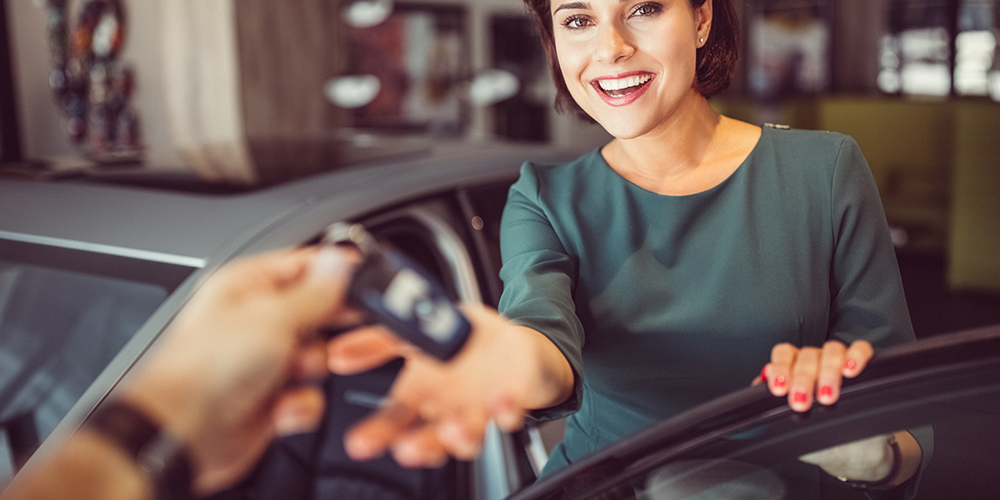You’ve had your eye on a shiny, new compact crossover for some time, and you’re ready to jump behind the wheel and hit the highway.
You just have to decide whether buying or leasing is the road you want to take. Before signing any contracts, consider a few factors that may help you choose.
New Technology and Safety Features
By some estimations, car owners typically keep their vehicles for six and a half years1, but if you prefer to always drive the latest model, leasing may be a good way to go. Most contracts range from two to four years, and when the lease is up, you’re free to purchase the vehicle you’ve been leasing or pursue a new car.
Cash Down and Monthly Payments
The average cost of a new car is $34,000.2 A down payment of 10% or more is more likely to net a good interest rate. Down payments for leases, however, are typically lower. When it comes to leasing a car, monthly payments are often lower than loan payments since you’re only covering vehicle’s depreciation plus rental charges
Mileage, Maintenance and Customization
Weekend road-trippers and professionals with long commutes may want to buy instead of lease because most contracts have mileage limits of about 12,000 miles annually.3 If you go over this limit, you’ll likely be facing high fees.
If you have a lease contract, pay attention to the fine print to avoid fees for early termination, customization of the vehicle, or excessive wear and tear.
Also, check if the contract limits whether you can move out of state and take the vehicle with you. On the upside, since the car will be under warranty for the duration of the lease, you may not have to worry about unexpected, costly visits to the garage.
Selling, Trading and Resale Value
When a car lease is up, many contracts will allow the renter to purchase the vehicle. Many people instead opt to return the car to the dealership because they prefer to not think about resale values or negotiating a trade or sale.
Overview
Leasing a car is a lot like renting an apartment in that you’ll never actually own the vehicle unless you choose to buy it when the lease term is up. By the time your lease is finished, you would likely be halfway through a typical five-year loan and well on your way to having no monthly payments.
Leasing has become a popular option for many drivers, and currently counts for more than 30% of new car transactions.4 If money is a bigger motivating factor for you than driving a new car every two years, then it may be helpful to know that buying typically costs less than leasing when compared with short-term leases.
Ready to learn more about auto financing with First Horizon Bank?
Visit the Auto Loan section for more information or to apply for a loan online today.
Sources:
1 edmunds.com - https://www.edmunds.com/car-leasing/should-you-lease-your-new-truck.html, October 2016
2 forbes.com - https://www.forbes.com/sites/learnvest/2017/03/09/should-you-buy-or-lease-your-next-car/#4f9400e04224, March 2017
3 forbes.com - https://www.forbes.com/sites/learnvest/2017/03/09/should-you-buy-or-lease-your-next-car/#4f9400e04224, March 2017
4 edmunds.com - https://www.edmunds.com/car-leasing/should-you-lease-your-new-truck.html, October 2016

